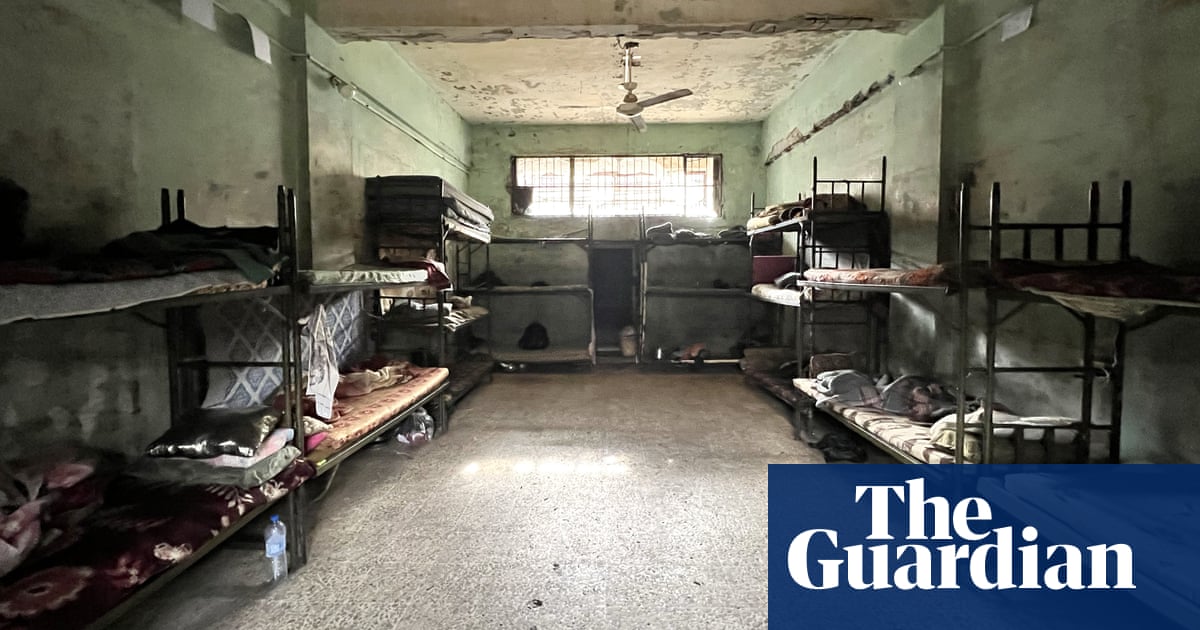- Joined
- May 11, 2013
- Posts
- 24,887
- Reaction score
- 13,613
- Points
- 2,755
- Location
- Morganton, N.C.
- Website
- conversations-ii.freeforums.net
(The Guardian) Tears of joy and sadness as ‘disappeared’ Syrians emerge from Assad’s prisons
Bethan McKernan is the Guardian’s Jerusalem correspondent: As Syrian rebels led by the Islamist group Hayat Tahrir al-Sham (HTS) captured city after city on the road to Damascus, forcing Bashar al-Assad to flee the country, they also opened the doors of the regime’s notorious prisons, into which upwards of 100,000 people disappeared during nearly 14 years of civil war.
Many emerged frail and emancipated into the bright December sunlight, greeted by weeping family members who had no idea they were still alive. Some struggled to comprehend that Assad was gone; a few held even longer had never even been told that he had succeeded his father, Hafez, who died in 2000.
Verified videos from Damascus showed dozens of women and small children being held in cells, the rebels opening the doors telling them not to be afraid.
The prisons infamous for torture in and around Damascus itself – including Sednaya, the most notorious, where satellite imagery showed a new crematorium was built in 2017 to dispose of bodies – were broken open early on Sunday. There are conflicting reports of underground cell blocks yet to be reached.
The photos and videos of reunited families are bittersweet. The stories of the prisoners are astonishing; they will take years to be told in full, further grim evidence of the crimes the Assad family committed against so many of their own people.
Al-Arabiya broadcast footage of a family arriving in Damascus to meet their released son, the elderly mother’s voice breaking with emotion as she embraced him for the first time in 14 years.
Raghad al-Tatary, a pilot who refused to bomb the city of Hama during the uprising against Hafez al-Assad in the 1980s, was freed after 43 years; Tal al-Mallouhi, 19 when she was arrested in 2009 for a blogpost criticising state corruption, was found alive. One shaven-headed, shaking man in Sednaya had been so ill-treated he had lost his memory and struggled to talk. His family said he had been 20 and a medical student when he vanished 13 years ago.

 www.theguardian.com
www.theguardian.com
Bethan McKernan is the Guardian’s Jerusalem correspondent: As Syrian rebels led by the Islamist group Hayat Tahrir al-Sham (HTS) captured city after city on the road to Damascus, forcing Bashar al-Assad to flee the country, they also opened the doors of the regime’s notorious prisons, into which upwards of 100,000 people disappeared during nearly 14 years of civil war.
Many emerged frail and emancipated into the bright December sunlight, greeted by weeping family members who had no idea they were still alive. Some struggled to comprehend that Assad was gone; a few held even longer had never even been told that he had succeeded his father, Hafez, who died in 2000.
Verified videos from Damascus showed dozens of women and small children being held in cells, the rebels opening the doors telling them not to be afraid.
The prisons infamous for torture in and around Damascus itself – including Sednaya, the most notorious, where satellite imagery showed a new crematorium was built in 2017 to dispose of bodies – were broken open early on Sunday. There are conflicting reports of underground cell blocks yet to be reached.
The photos and videos of reunited families are bittersweet. The stories of the prisoners are astonishing; they will take years to be told in full, further grim evidence of the crimes the Assad family committed against so many of their own people.
Al-Arabiya broadcast footage of a family arriving in Damascus to meet their released son, the elderly mother’s voice breaking with emotion as she embraced him for the first time in 14 years.
Raghad al-Tatary, a pilot who refused to bomb the city of Hama during the uprising against Hafez al-Assad in the 1980s, was freed after 43 years; Tal al-Mallouhi, 19 when she was arrested in 2009 for a blogpost criticising state corruption, was found alive. One shaven-headed, shaking man in Sednaya had been so ill-treated he had lost his memory and struggled to talk. His family said he had been 20 and a medical student when he vanished 13 years ago.

Tears of joy and sadness as ‘disappeared’ Syrians emerge from Assad’s prisons
Men, women and children, many jailed for speaking out against regime, reunite with their families
